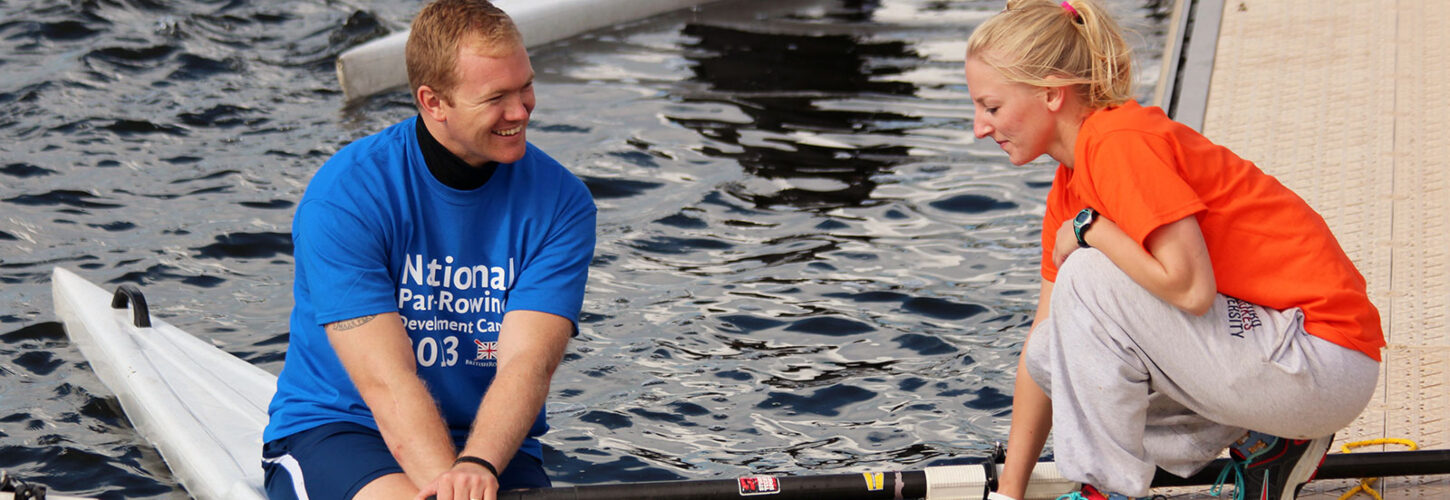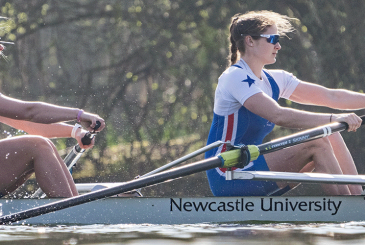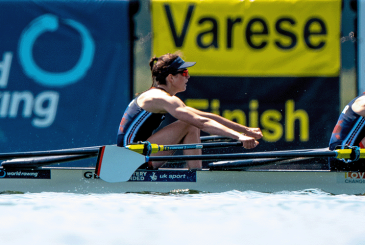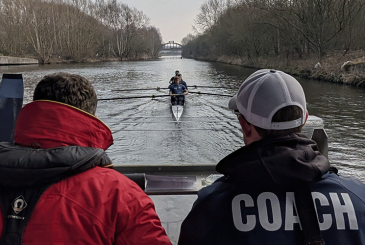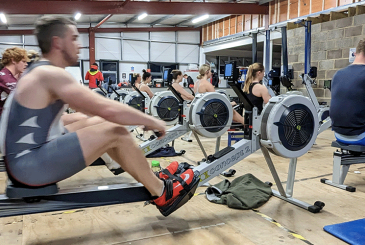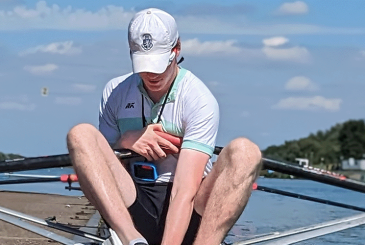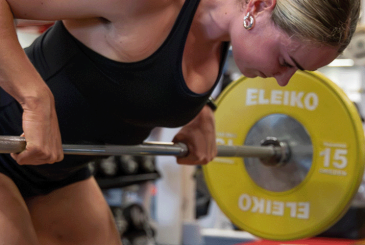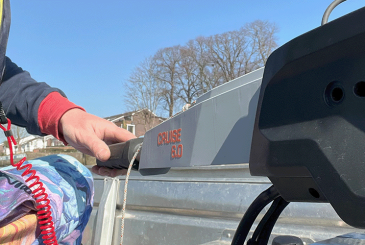The summer is a great time to reflect and look ahead to the coming season. For coaches, it’s the ideal time to enhance skills and think about personal development. Zoe Gullen talks to Tim Schmalz and Rachel Smillie who completed the British Rowing Club Coach course recently
For Tim Schmalz, the British Rowing Club Coach course was “a great way of enhancing my toolkit as a coach”.
Now coach of the senior women at Caius College Cambridge, and with six years of coaching experience behind him, Tim “knew that there was an opportunity to really grow at the club as a coach. I wanted to develop my skills and really up my game in terms of what I can offer.”
Similarly, for Rachel Smillie of Eton Excelsior: “The more coaching I was doing, the more I wanted to feel that I was upskilling”. Her club was also keen to professionalise and standardise its coaching offering. Rachel says: “I was captain when I did my course, and I wanted to feel that we had an understanding that was based on the British Rowing framework, where we were offering consistency, particularly for the people that we were teaching to row.”
The course, which has separate strands for fixed and sliding-seat rowing, includes 36 hours of face-to-face tutoring, which in August 2021 was run as a four-day block, after a day covering additional requirements such as first aid and safeguarding.
Tim says: “It was intense, but I think that type of intensity really benefits everyone on the course, because you really do focus, and the down time, having meals together, the coffee breaks, that’s where I found the most insightful learning came from – just talking to people.”
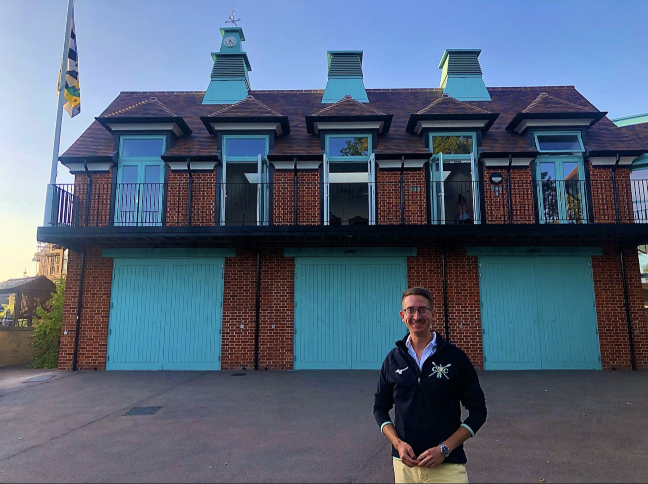
Indeed, coaching behaviours and communication are at the very heart of the course. Brett Bader, the Wessex and South East coach educator who ran the August course, says: “It’s very much about emotional intelligence, it’s understanding people, to maximise engagement and have that positive experience.”
He continues: “The really important thing is appealing to different people’s learning styles.” He likens himself to “a conductor, or circus master: you are pulling out the talent and getting people to showcase things. They may already come with great experience and skills, which we can then use to create opportunities.”
He uses small groups to encourage participants to take the lead on tasks, “giving stepping stones so that they can demonstrate success very quickly, and build confidence”. He starts with an ice-breaker exercise in communication, rather than the specifics of rowing: participants “coach something else, from making model aeroplanes to drawing a cartoon character to standing on one foot. Doing that helps set the scene for the rest of the course.”
While there are instructional elements, there is a strong emphasis on methods to bring about an individual’s development, such as using the rowing machine to refine technique. Brett says: “People almost have this light bulb moment: you get rid of having to get the boat on the water and to get the balance right, and all the additions that have an impact.”
For Brett, “coaching is about unlocking potential, that mutual respect, mutual dialogue, understanding your rower. We play around with different things, and where possible I get them to experiment – so long as it’s safe.”
“The most valuable thing is the connections you make with other coaches”
Tim says: “I found that very little of the course is purely instructional. It’s more about creating scenarios that allow you to play, more or less, and try new things with one another. Of course, there are certain instructional elements, but more than 50% of every day was more practical. working together as a team to problem-solve.
“Brett gave us so much space just to be with one another and learn from one another, learngood practices, discuss, have the courage to learn new things and just experiment – that was absolutely invaluable.”
For Rachel: “One of the things I got out of the course was seeing different styles in action. The syllabus is fantastic, but the most valuable thing is the connections you make with other coaches.
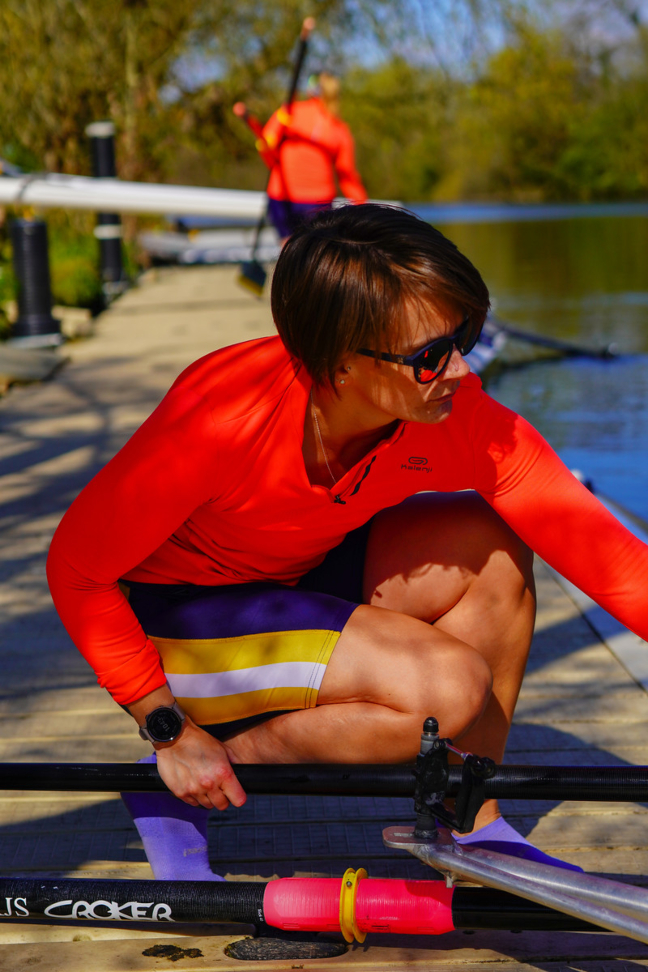
“One of the big things we have been developing at Eton Excelsior is recreational rowing and making use of touring boats rather than teaching people in fine boats, so it was really useful speaking to people from other clubs and finding out what they’d done.”
After the face-to-face element, participants then keep a coaching diary for six ‘linked and progressive water sessions’, prior to the final assessment of a water session.
This built on Rachel’s existing coaching practice: “It was formalising something I did in my head anyway: before a session I would have had a rough map of what I wanted to do and how that fitted into the trajectory of what we were doing. The diary gives you a history to look back at and an evidence base; it pushes you to be a little bit more innovative as a coach: are there ways of improving things, could I be talking about something in a different way and communicating that to the crew?”
Tim agrees, saying that the diary “is where you keep track of feedback, both what you pick up on the bank or towpath as a coach, but also what your crew tells you, and it’s something to follow up on through progressive sessions.”
Also, as he coaches within the confines of eight-week Cambridge terms, the diary “helps give shape to the architecture of an entire term. We work in short chunks, and it’s very helpful for that and for the crew to know what to expect.”
The current course fee, at £499, is a significant outlay, but a number of funding streams are available. Some clubs may be able to offer some financial support, and also there may be help from some regions. Tim received a bursary of 33% of the course fee from the Eastern Regional Rowing Council, having been nominated and supported in his application by his club. The UK Coaching website also has a list of funding opportunities, such as local initiative funds and foundations offering awards.
The course is also an investment, equipping coaches with the skills to progress, creating a good working environment and ultimately benefitting clubs and their members. Having done the course, Rachel found that “when I was talking to our chief coach, for instance, we could have much more productive conversations about what we were doing and what we wanted for the club”.
She adds: “It also helped in terms of hiring. I knew what I was looking for based on my experience of the course, but also because through the course I had met a lot of other coaches and I knew the coaching style I wanted for the culture of the club.”
She also says that the supporting resources, including the Rower Development Guide, are “so useful, particularly if you are stuck on something, or at a loss as to how to do things. They stop things getting stale, doing the same things all the time, and people get frustrated with that.”
Then, there is the personal enrichment: for Rachel, this is training to row across the Atlantic. “I have always wanted to do it, but had thought it was something that would not be accessible to me, and my crewmates felt the same. Last year I coached a solo rower, I taught him to row and it was through following his campaign and coaching him that I realised we can do this – it was definitely what planted the seed.”
Coaching has, she says, “had a huge impact on my development as a rower. One of the things I love about rowing is that we are just part of a massive community, and that’s one of the most wonderful things about rowing – and the coaching environment is part of that too.”
Find out more about our coaching courses
To see what courses are coming up, be sure to check our event calendar for live courses. You can request a workshop or qualification in your area or club here. Or contact your regional coaching representative to find out what is planned in your region.


